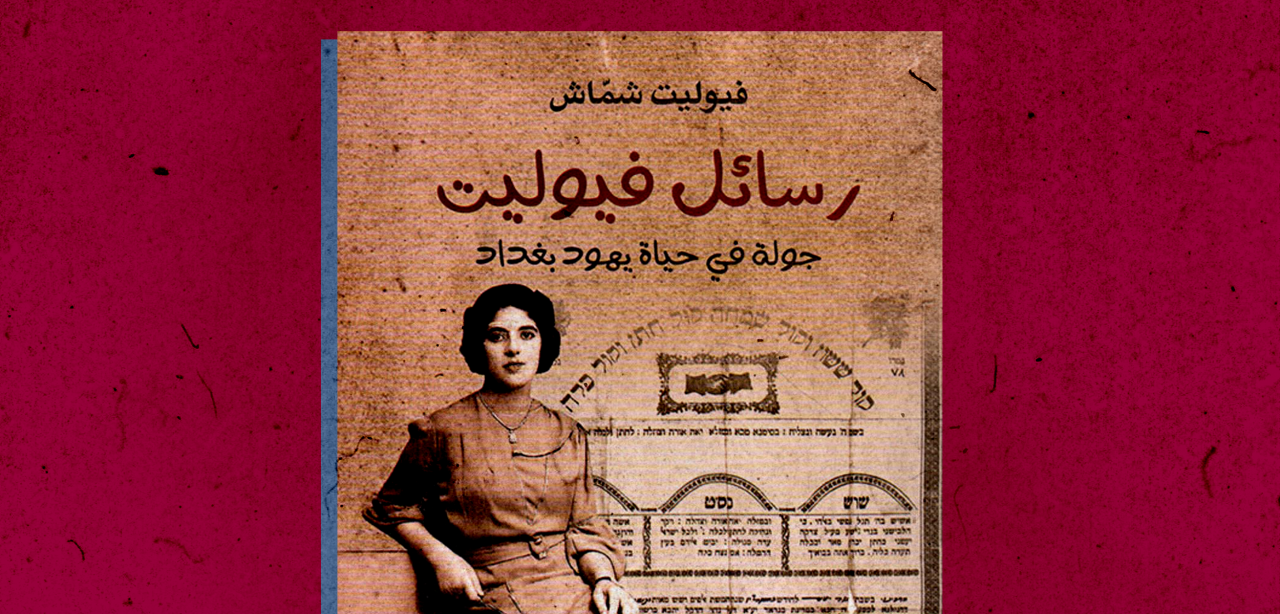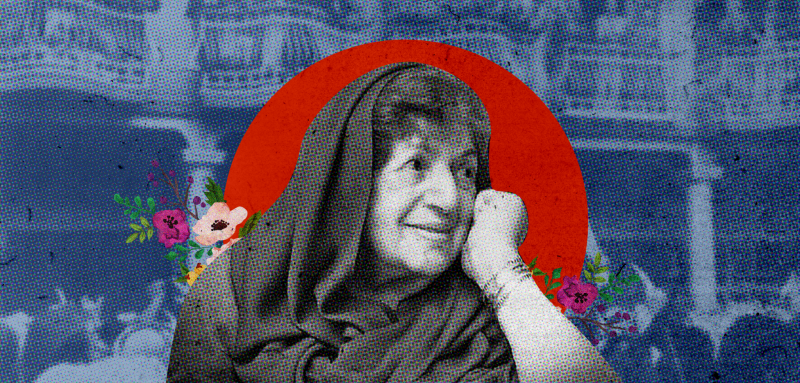BBC Radio 4’s religious and ethical news program Sunday featured a short segment about the Farhud—a two-day pogrom when 175 Jews had been killed, a thousand injured and 900 Jewish homes were destroyed following a pro-Nazi coup d’état in Baghdad in 1941. My Arabic translation of Violette Shamash’s Memories of Eden had been released last year, entitled رسائل فيوليت: جولة في حياة يهود بغداد. It included a chapter about the Farhud, and so BBCs Carmel Lonegran contacted me to arrange for a Zoom interview for the segment.

Unlike the other interviewees, who lived in the UK and could talk to over the phone, there’s an eleven-hour time difference between us—I live in New Zealand. The producer emailed a list of questions to outline my perception of the Farhud prior to the interview.
The episode aired on 19 September 2021 and sheds light on why many Iraqis today are interested in knowing more about the ordeal of one of the oldest Jewish communities in the world, who’d made up nearly a third of Baghdad’s population in the early 20th century, and now reduced to only three persons.
What does Farhud mean in Arabic?
The roots of the word remain a mystery to me. I’ve tried asking friends who are well-versed in classical Arabic, and looked it up in several dictionaries, but what I found there had little to do with what happened to the Jews of Iraq. What I can tell you though is that the colloquial connotation of the verb فرهد is not exactly, but close to the English “to devour”.
What was Iraq like in the years before the Farhud?
I was born in Baghdad three decades after the Farhud, but I’ve read many books and heard different stories from family friends. The picture I have in my mind of Iraq during that era is that of a young country that was a work in progress. Of course, Mesopotamia is as ancient as the dawn of human civilization, but modern-day Iraq was created by a British decision after WWI. It was almost modern, almost secular, almost democratic and had an almost active political opposition. It probably had a good potential for prosperity, but was evidently too weak to survive the many surrounding challenges.
An ethnic minority works hard to acquire a respectable financial, social and political status, mainly to secure itself, but eventually becomes an object of envy. On Farhud, the massacre of Baghdad’s Jews in 1941
What is your take on the Farhud?
It’s a dark chapter in Iraq’s modern history, although the scapegoating of minorities has been happening since time immemorial, and is not exclusive to the Middle East. If we compare the Farhud to what had happened in Nazi Germany, for instance, we can see the scenarios are strikingly similar. An ethnic minority works hard to acquire a respectable financial, social and political status, mainly to secure itself, but eventually becomes an object of envy. When hardships befall the majority, they cause xenophobia and chauvinism to arise. It’s always easier to blame the minorities for the majority’s problems, and they – the minorities – often end up being punished for a crime they had not committed. In this case, it’s treason for siding with the British against the local government.
Do you believe that Muslim-Jewish relations are in disarray because of it? How can they be fixed?
The Farhud scar is undeniably there, but I don’t think there are hard feelings on either side. Both Iraqi Muslims and Jews are now aware that hatred had been inflicted on them by foreign agendas and ideologies, it was never genuine.
Of course, most Iraqis support Palestinian rights. That said, I don’t know a single person who praises the Farhud, and I remember when we travelled to Europe during our summer holidays in the 70s, many Iraqi families were approached by strangers who looked and talked like us, offering to help us get directions, and wondering if we happened to know their old friends in Baghdad, they were Iraqi Jews. Also, nearly all the survivors’ testimonies I have come across, including Memories of Eden, mentioned that many Muslims had indeed protected their Jewish neighbors, prevented the angry mob from harming them and offered to shelter them in their own houses.
I have an account on Twitter, and it fascinates me how warmly Iraqi Muslims are interacting with their Jewish compatriots. Although, as if by some unspoken agreement, everyone avoids tackling the Israeli-Palestinian conflict, choosing instead to celebrate their Iraqiness and common culture.
You translated memories of Eden, how was that for you?
After sending my third book to press in 2018, I decided my next endeavor was going to be an Arabic translation of one of the several Farhud survivors’ memoirs I’d read in English. ISIS’s campaign of genocide against the Yazidis, and the cleansing of the Middle East’s Christian communities were clearly episodes in an ongoing series. The plight of the Iraqi Jews was too relevant to be ignored anymore, but I had to be very careful selecting a manuscript given the high sensitivity of the topic.
The Farhud massacre scar is undeniably present, I don’t think there are hard feelings on either side today. Both Iraqi Muslims and Jews are now aware that hatred had been inflicted on them by foreign agendas and ideologies, it was never genuine
Memories of Eden stood out because of its pure and warm storytelling. Violette Shamash (1912 – 2006) was a loving grandmother, telling her grandchildren about their ancestors’ lives in a distant land that was very dear to her heart. The narrative exuded trust, and was not the least interested in settling old scores or seeking revenge. It took me more than two years to finish this project, during which, I became Violette’s lost Iraqi voice, and she in turn became my much-loved Jewish grandmother.
What’s the future of Muslim-Jewish relations moving further into the 21st Century?
If we’re talking about the future of the Israelis and the Palestinians, it’s theirs to decide. I’m in no position to speak on any party’s behalf, but I think we have valuable lessons to learn from the Jewish-Muslim coexistence in pre-1941 Baghdad. I also believe that listening to each other’s stories and recognizing our shared humanity are crucial first steps forward.
What main point would you like to make in the Farhud’s 80th anniversary year?
Having witnessed first-hand the atrocities of consecutive wars in Iraq, I wholeheartedly feel for the civilians caught up in the violence and wish for their suffering to end very soon, but reaching a peaceful solution to the conflict seems unlikely when both sides are investing in surrounding themselves with more walls – physical and otherwise.
There’s no denying that the earlier generations of Iraqi Jews had been through a lot. But their children and grandchildren are in a very special position today, because they have both cultures distilled in them. So, if anyone is qualified to bridge the gap between the two peoples, it’s definitely them.
Raseef22 is a not for profit entity. Our focus is on quality journalism. Every contribution to the NasRaseef membership goes directly towards journalism production. We stand independent, not accepting corporate sponsorships, sponsored content or political funding.
Support our mission to keep Raseef22 available to all readers by clicking here!
Interested in writing with us? Check our pitch process here!





